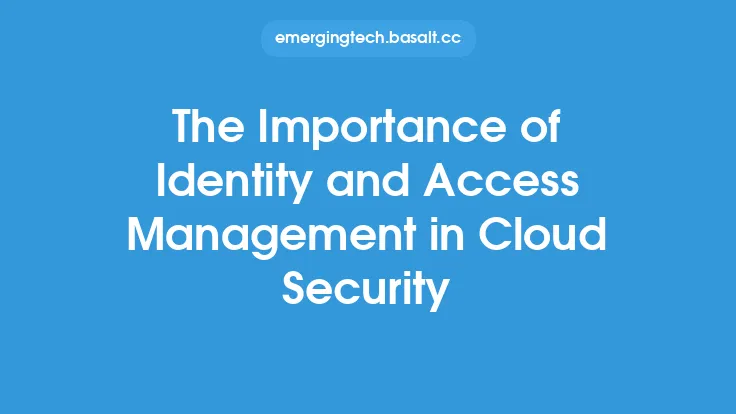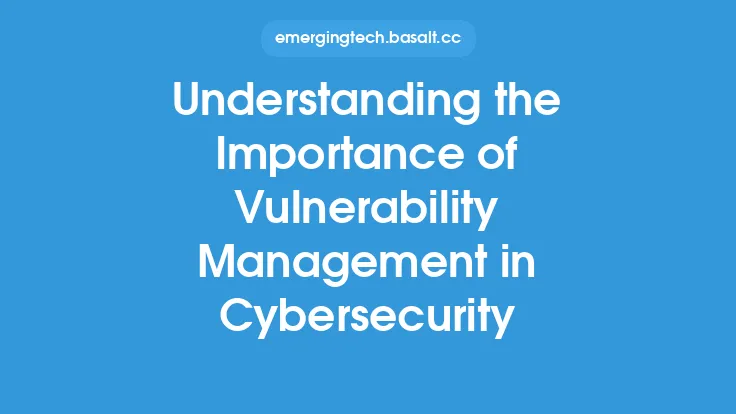Secure key management is a critical component of blockchain security, as it enables the secure storage, management, and use of cryptographic keys. In blockchain, cryptographic keys are used to secure transactions, control access to data, and verify the identity of users. Without proper key management, the security of the entire blockchain network can be compromised, putting sensitive data and assets at risk.
Introduction to Key Management
Key management refers to the process of generating, distributing, storing, and managing cryptographic keys. In blockchain, key management is used to secure transactions, control access to data, and verify the identity of users. Cryptographic keys are used to create digital signatures, which are used to authenticate transactions and ensure that they are valid. Key management is a critical component of blockchain security, as it enables the secure storage, management, and use of cryptographic keys.
Types of Cryptographic Keys
There are several types of cryptographic keys used in blockchain, including public keys, private keys, and symmetric keys. Public keys are used to verify the identity of users and to encrypt data, while private keys are used to decrypt data and to create digital signatures. Symmetric keys are used to encrypt and decrypt data, and are typically used for secure communication between nodes on the blockchain network. Each type of key has its own unique characteristics and uses, and must be managed and stored securely to prevent unauthorized access.
Key Management Techniques
There are several key management techniques used in blockchain, including key generation, key storage, and key rotation. Key generation refers to the process of creating new cryptographic keys, while key storage refers to the secure storage of keys. Key rotation refers to the process of replacing old keys with new ones, which helps to prevent unauthorized access and to maintain the security of the blockchain network. Other key management techniques include key revocation, which refers to the process of revoking access to a key, and key escrow, which refers to the process of storing a key with a third-party service.
Secure Key Storage Solutions
Secure key storage solutions are critical to the security of blockchain networks. These solutions provide a secure and reliable way to store and manage cryptographic keys, and help to prevent unauthorized access. Some common secure key storage solutions include hardware security modules (HSMs), trusted execution environments (TEEs), and secure key stores. HSMs are specialized hardware devices that are designed to securely store and manage cryptographic keys, while TEEs are secure environments that are isolated from the rest of the system. Secure key stores are software-based solutions that provide a secure and reliable way to store and manage cryptographic keys.
Best Practices for Key Management
There are several best practices for key management in blockchain, including generating keys securely, storing keys securely, and rotating keys regularly. Keys should be generated using a secure random number generator, and should be stored in a secure location, such as a hardware security module or a trusted execution environment. Keys should also be rotated regularly, to help prevent unauthorized access and to maintain the security of the blockchain network. Other best practices include using secure communication protocols, such as SSL/TLS, and implementing access controls, such as multi-factor authentication.
Challenges and Limitations
Despite the importance of secure key management in blockchain, there are several challenges and limitations to implementing effective key management solutions. One of the main challenges is the complexity of key management, which can make it difficult to implement and manage key management solutions. Another challenge is the cost of key management solutions, which can be prohibitively expensive for some organizations. Additionally, key management solutions can be vulnerable to attacks, such as side-channel attacks and quantum computer attacks, which can compromise the security of the blockchain network.
Future of Key Management
The future of key management in blockchain is likely to involve the development of new and innovative solutions, such as quantum-resistant key management and artificial intelligence-based key management. Quantum-resistant key management refers to the use of cryptographic techniques that are resistant to attacks by quantum computers, which are expected to become more prevalent in the future. Artificial intelligence-based key management refers to the use of artificial intelligence and machine learning algorithms to manage and secure cryptographic keys. These solutions are expected to provide more secure and efficient key management, and to help maintain the security of blockchain networks.
Conclusion
In conclusion, secure key management is a critical component of blockchain security, and is essential for maintaining the security and integrity of blockchain networks. By understanding the importance of key management, and by implementing effective key management solutions, organizations can help to prevent unauthorized access and to maintain the security of their blockchain networks. As the use of blockchain technology continues to grow and evolve, the importance of secure key management will only continue to increase, making it essential for organizations to prioritize key management and to invest in effective key management solutions.





